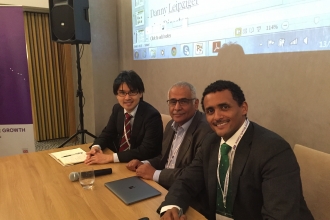Thanks but no thanks: A new policy to reduce land conflict
Land conflicts in developing countries are costly both directly and through increased land degradation. An important policy goal is to create respect for borders. This often involves mandatory, expensive interventions. We propose a new policy design, which in theory promotes neighborly relations at low cost. A salient feature is the option to by-pass regulation through consensus. The key idea combines the insight that social preferences transform social dilemmas into coordination problems with the logic of forward induction.



